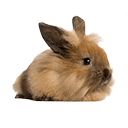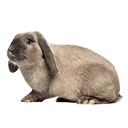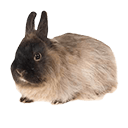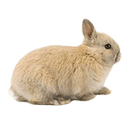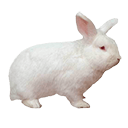Healthy, happy rabbits need plenty of space to run around in, a nutritious diet, and companionship. We share some useful tips on keeping your bunnies bouncing with good health.
Rabbits may not be as large as cats and dogs, but they still require just as much consideration and care. With plenty of physical and mental stimulation, and a nutritious diet, you can make sure your bunny stays happy and healthy.
Provide plenty of space
The Rabbit Welfare Association & Fund (RWAF) saying is, ‘a hutch is not enough’ – and that refers to every aspect of your rabbits’ care. By providing a permanent run of at least 2m x 3m (6ft x 10ft), with a height of at least 60cm (24in), you’ll be giving your bunnies the opportunity to rear up, jump, and ‘periscope’ upwards.
All of these activities help to stretch the muscles in your bunnies’ backs, preventing aches and pains and even spinal damage. A spacious permanent enclosure also allows your rabbits to be alert and active at both dusk and dawn, which is how they would naturally behave in the wild.
Throw away the feeding bowl
Let your rabbits forage for their food, like they would in the wild. Give your bunnies their pellets in a feeding ball that can be nosed around on the ground. Greens can be chopped up and hidden inside clean plant pots, or pegged to the top of the enclosure so that your rabbits have to reach up to eat it.
Also, hay can be presented in lots of exciting ways – stuff it into an unused hanging basket attached securely to the roof of the enclosure, or pack it into wicker tunnels, cardboard tubes, or cardboard boxes with a hole at each end.
Build an obstacle course
Large, strong cardboard boxes can be climbed on using secure wooden ramps, and a hole in the side turns a box into a bolt-hole. Use clean plastic tubing with smooth edges to create tunnels, and give your rabbits somewhere to hide by placing large plastic plant pots on their sides, with bricks at either side to stop them rolling over. Remember to supervise your bunnies when they’re playing with homemade games and toys.
In good company
A rabbit on its own can become anxious and depressed. In the wild, rabbits live in warrens with hundreds of other rabbits, so needless to say they love company. Ideally, pet rabbits should live in pairs or groups – the best combination being a neutered male with a spayed female.
Pairing two rabbits together to form a bond isn’t always instant. You will need to take the time to carefully and gradually get them used to each other, which can sometimes take as long as a couple of months. But once a bond between two rabbits has been established, they become inseparable – grooming each other, eating together, and sleeping side-by-side.
Feed them a healthy diet
Grass and hay make up the most important part of a rabbit’s diet and should comprise between 80 and 90% of it. Rabbits can also be given a handful of leafy vegetables daily – all washed beforehand – which can include parsley, sprouts and celery leaves.
Pellets should only make up around 5% of your rabbits’ diet. The benefit of pellets, as opposed to a mixed kibble, is the rabbits have to take in the correct amount of calcium with every bite. With mixed kibble, they eat out what they want and leave the calcium pellets. This can significantly affect their dental alignment.
Allow your rabbits to munch on plenty of grass when they’re out in the garden, too. They may also take to herbs, such as basil and coriander, and will happily eat weeds from your garden, such as nettle and clover. Be aware, however, of common plants such as foxglove, poppies and rhubarb, which are extremely poisonous and should be kept away from your bunnies.
Also ensure you don’t feed them too many fruits and vegetables, which are high in sugar and can give them an upset stomach. Save these for the occasional treat instead.
Keep vaccinations up to date
Regular vaccinations protect rabbits from two painful and potentially fatal diseases: myxomatosis and rabbit viral haemorrhagic disease (RVHD). Both diseases affect indoor and outdoor bunnies. Have your rabbits vaccinated when they’re babies – from five weeks of age – and keep them updated with yearly booster shots.
Regular check-ups
Regularly check that your bunny has a clean and dry nose, ears, tail and bottom, and look out for any snuffles or patches of red, sore skin that may indicate a problem.
Keep an eye on your bunny’s weight through body condition scoring to help prevent any health problems from being underweight or from excess weight.
Get a quote
Top Tips for Rabbit Wellbeing
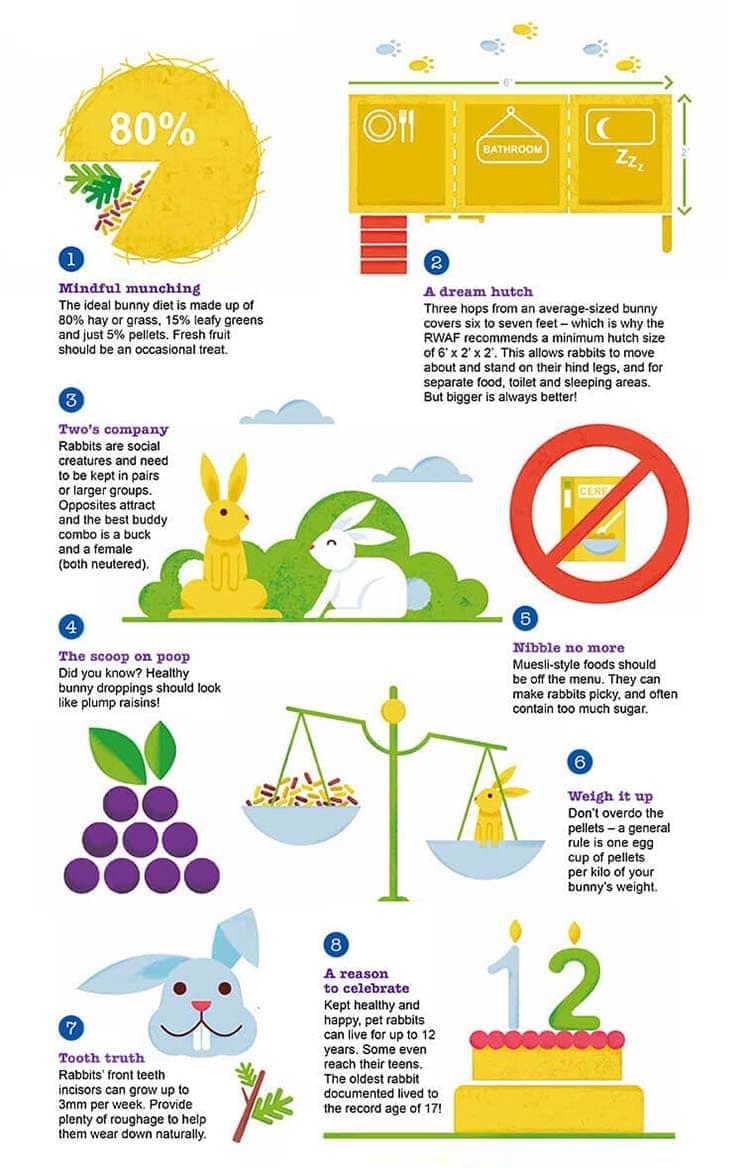
Explore different breeds
Discover grooming tips, personality traits, nutrition guide and more

